“It is clear, your fortune shows/You’re a dancer on your toes” (Crystal Fortunes 1940)
In a week or so, May 16, I’ll be talking with author Madelaine Lucas about her exquisite, reflective debut novel ‘Thirst For Salt’ at a book launch event at Roaring Stories in Sydney, where Maddie was once a bookseller, in the same neighbourhood where I spent much of my happily misspent youth.
Ten or so years ago, I gave Maddie my upright piano when my little family departed Australian shores for the US of A, in an unexpected move. A couple of years later Maddie relocated to NYC to study and passed the piano onto someone else.
Before that we’d played rock shows together in Sydney after connecting through my daughter
, who also is a maker of music and wrangler of words. My point is, life is long and it tends to keep winding on in unexpected ways and sometimes we end up being people we didn’t expect to be or doing things we couldn’t have guessed we’d be doing or living in unforeseen places. Whether by accident or design, upheavals or circumstances changing or interests going in new directions or odd opportunities coming our way, we can find we’ve reinvented ourselves, despite it feeling like we’ve only ever put one foot in front of the other. It’s almost like there’s an infinite number of selves we could be and we just spin the wheel and see where we land.There are other options. Put your money in the slot and all will be revealed.
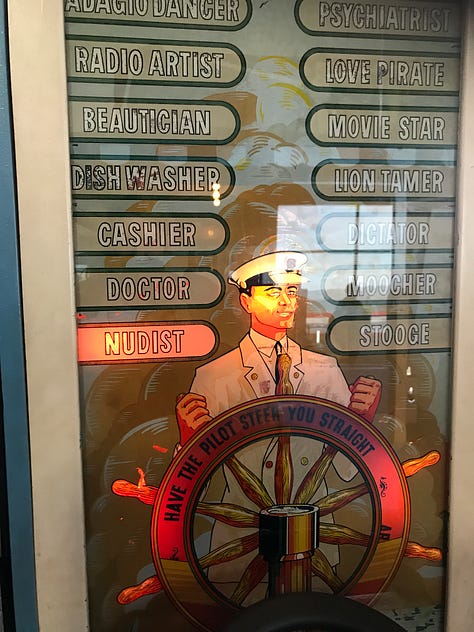
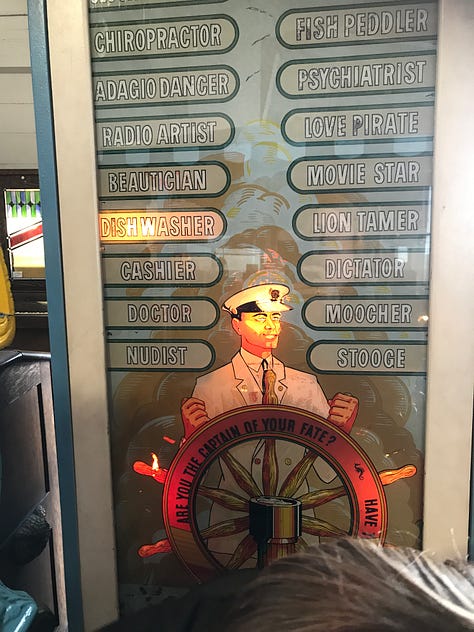
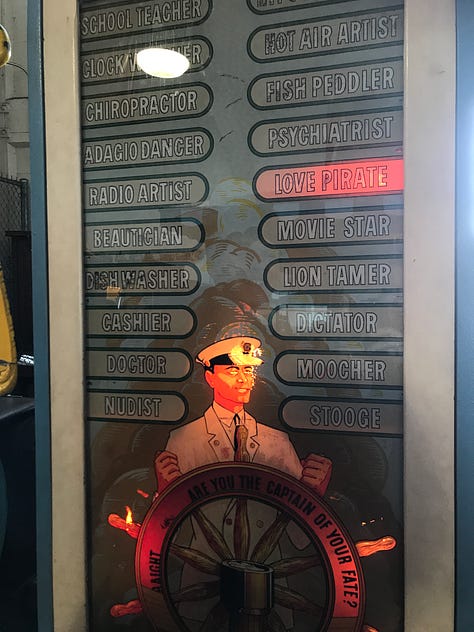
Even if you reimagine yourself or dye your hair or get a trophy or a different job or walk through sliding doors, you’re still the same old you now with added extras. Still the real you. Just ask Uncle Bob.
In the spirit of reflection and reinvention, I thought I’d share this conversation I had with Maddie about the book I wrote last year and the many selves I’ve inhabited so far.
Lo Carmen on creative success and her new book, ‘Lovers Dreamers Fighters’ (from RUSSH Magazine, June 2022)
Lo Carmen has been a working artist since she was a teenager. After making her feature film debut at the age of sixteen alongside Noah Taylor in the cult classic The Year My Voice Broke, she has forged a career as an actor as well as a singer-songwriter, releasing seven albums through her own label and collaborating over the years with members of the Bad Seeds, The Mess Hall and duetting with Bonnie “Prince” Billy. Lovers Dreamers Fighters is her first book, a memoir of coming-of-age on screen and in song that also pays tribute to the iconic Australian women—writers, rebels, activists and fellow musicians—who lit her way.
If I were to make my own “roll call of muses,” Lo would be high on the list as an influence and inspiration. Although a generation apart, we both come from the same loving but dysfunctional family that is the Australian underground music scene. I don’t remember the first time we crossed paths—possibly during my childhood, when she worked with many of the same musicians who also played in my father’s band, X, or when I became close with her daughter, pop provocateur Holiday Sidewinder. Since then, I’ve had the honour of sharing stages with Lo and I’ve always felt a kinship with her music—its Aussie punk DIY ethos and Nashville honky-tonk heart—as well as a deep admiration for her independent spirit and her dedication to the hard work it takes to build a creative life.
Madelaine Lucas: Lovers Dreamers Fighters places your creative coming-of-age alongside the stories of trailblazing Australian women whose lives have intersected or impacted your own. How did you arrive at this structure?
Lo Carmen: I launched into it without knowing exactly what I was doing, as I do most things. I knew who I wanted to write about, but I was a bit overwhelmed trying to work out how I was going to put it all together. So I thought, just start writing little sections, and then see how it patchworks together. In the end, one story led into another. Everyone had their own particular place in time and had generated something in me. The whole book felt like a call and response.
ML: This “roll call of muses” features influential icons like Chrissy Amphlett and political activist Sally Anne Huckstep, as well as your personal heroines, like Suzi Sidewinder. How did you decide on who would be included?
LC: When I moved back to Australia in 2020, I was unpacking all of the sentimental junk that I probably should have thrown out rather than paying for storage for seven years while my family was living in America. Once I got over the frustration of “why have I kept all this junk” and allowed the nostalgia and sentiment of it to return, I realised the things I had kept had all belonged to, or were part of, those women, and how meaningful they were to me. When I looked around, I had so many actual objects of theirs, like Wendy Saddington’s black tambourine, or this fantastic little set of 1950s “How To” books that Suzi Sidewinder gave me—like, “How to be a great hostess”, “How to have a better personality”, “How to wear your hair 50 ways”. It was one of her most treasured items. I spent a lot of time reading those books when I was a teenager. I loved all the clues into what it was like to be a woman in the ‘50s, and how much effort people put into doing their hair, and the crazy exercise and diet regimes.
ML: It’s so interesting that the way to the book was through these very tangible objects. Maybe that's why you were holding on to them for all these years.
LC: I think I have always been an accidental archivist. At some point, I was going to start a business—being an archivist for defunct bands and making beautiful photo books of all the ephemera, like set lists and photographs and weird little notes and flyers. Other people are doing that kind of thing now, probably far better than I ever could, but I did do it for myself, which was a fun process.
ML: Music memoirs tend to focus only on the famous and successful, but many of the women you write about in Lovers Dreamers Fighters have either been left out of the official cultural history, like singer Wendy Saddington, or misrepresented in the mainstream media, like Sally Anne Huckstepp, who was murdered five years after she became a sensation for calling out police corruption on national television in 1981. Why did it feel important to reclaim their legacies at this particular moment?
LC: I think there's a lot of it going on across the board. So much of what is allowed into the cultural archives is still decided by gatekeepers, but people are starting to take a second look the past with fresh eyes. Wendy Saddington just missed the era of things being permanently recorded. Everything was a lot more ephemeral then. Wendy didn't give a tonne of interviews, or go on to have a hugely successful career, even though at one point she was the most famous woman in Australia. Unless you happened to get on Countdown, it was easy to fade away.
Sallie Anne Huckstepp, on the other hand, was so well known, but she never got to tell her own story. I had conversations with people about her all the time because I had played her in the true crime drama Blue Murder. Her story still seemed to reverberate really strongly in Australian society, but there was this vision of her that I didn't think was right. She had to rely on mainly male journalists back then to tell her story, and she was so minimised by those accounts. I felt like I could say something about it, so I should.
ML: Is there any particular trait or quality you see the women in your book as having in common?
LC: They all had a rebellious spirit and a determination not to be told what to do. Some of them were living in that era where that wasn't that easy. Despite the 60s and 70s appearing to be incredibly free and wild, women were still expected to conform to various norms.
ML: You made your feature film debut when you were sixteen in The Year Voice Broke. Since then you've played in many bands and released seven albums as an independent musician. How the process of writing Lovers Dreamers Fighters compare to making a film or making a record?
LC: With film, you have no power, you just try your best to make somebody else's vision come to life. With music, I feel like I have all the power and I can just put out what I love. I was excited about writing a book because I thought it would be this big team effort, but it didn't really feel like that until the end. I envisaged myself putting on fancy outfits and going out to lunch and having conversations about how my chapters were coming along, and that didn’t happen! [Laughs]
ML: It’s funny that that as someone who has been a working artist since they were a teenager, you could still hold a romantic vision of what a creative process would look like! [Laughs].
LC: I know, I don't even know where I got that idea of being a writer from! It's mostly just outfits, like pussy-bow blouses and nice tight skirts. I was not wearing any of that while I was writing! [Laughs]
ML: How do you manage these different artistic identities? Do you see them as distinct?
LC: Kind of? But I also see that it all comes from the same place really. I was a little bit intimidated by the idea of writing a book, even though I've always loved to write, but once I started thinking of it as a record it became easier. With an album, I've always started with a cover, and often a title, then moved the songs around until the order worked. I started thinking about the chapter titles as song titles, and then it made complete sense. I didn't feel out of my depth anymore.
ML: What do you think an artist can learn from working in multiple disciplines?
LC: To go with your instincts, work hard to finesse them, and trust that your brain knows something that you don't. I believe that a lot of work goes on in the back of your head when you don't even know it’s happening, and suddenly, songs or ideas kind of appear. It's a bit dreamlike. Artistic outcomes are a beautiful combination of hard work and practicality and daydreams.
ML: How does it feel to look back now on songs that you wrote many years ago, or the films that you were in when you were first starting out as an actor?
LC: I like all of my older songs because they capture a period in time, although most of them I wouldn't sing anymore. I prefer to move forward than to go back, generally. Old movies, I don't know. They don’t really feel a part of me in the same way.
ML: Of all your different artistic pursuits, why do you think it was music more than any of the others that stole your heart and became your passion?
LC: I feel like it was something I was born into, which I'm sure is something you can relate to. We have such a similar parentage in terms of rock and roll dads and artistic mums. It never felt like a choice, music is just in my veins.
ML: Yeah, sometimes people ask me, “What was it like to grow up in a creative family?”—and I’m sure this is a question you’ve got a lot over the years, too. I always say, I have nothing to compare it to. It’s my norm. I’m curious about what it would be like to have accountants for parents.
LC: It’s given me a fascination with normal jobs. I love talking to people about what they do at the office. I find it really interesting. Part of me wishes that you could live a bunch of lives at the same time. I’ve always liked the idea that you could be a lot of different things, but obviously you have to follow, if not one path, then a similar route through life. And that kind of life was never going to be for me.
ML: When you grow up in an artistic family, you see the backstage of a creative life—what goes on behind the curtain. At its heart, I felt like Lovers Dreamers Fighters is really a memoir about work. I appreciated that because creative work, like domestic work, is not seen as labour a lot of the time.
LC: That's so true. As an artist, you're expected to hide the work aspect of it and only celebrate the shiny parts, and try to sell people on that glitz or the magic—and I love all of that, too. But I think it's cool when somebody's worked hard on something. I like to see that, and I also appreciate it in domestic circumstances. One of the themes that I really tried to tease out in the book was that so many women musicians in the past were struggling with the domestic demands of children, or felt like that was something they couldn’t do because it just wasn’t going to work. It's not easy to have children and be on the road, unless you're wealthy and can have amazing nannies, and even then I'm sure it's still really hard. Whenever I found something in an old article about how a singer dealt with the challenges of family life, I put it in the book.
ML: I remember seeing you open for Gareth Liddiard when you were pregnant with your youngest. I’d never seen anyone do that before and even though I grew up with unconventional parents, it made such a strong impression on me. It seemed so cool and subversive!
LC: Yes, it was quite a funny contrast. In some ways it feels quite un-rock and roll to be pregnant, but then it feels fabulously rock and roll to be playing a guitar and doing what you love when people expect you to be home sitting on the couch and awaiting childbirth.
ML: Your love for a good costume also comes across in the book—from the cocktail dresses gifted to you by family friends to the mysterious silver showgirl bikini you inherited from your grandmother. Your mother is an accomplished seamstress and made costumes for movies, including Muriel’s Wedding. How did that influence your approach to fashion?
LC: Funnily enough, my mum wore very simple cotton hippie clothes, but my dad had velvet jackets and fancy show clothes to wear to his piano bar gigs. So, it was his clothes that I would dress up in when I was little. The other night, I happened to see Bon Scott in the video clip for “Jailbreak”. All of the band are wearing these great costumes—kind of weird prison-type outfits with big arrows all over them. They're quite theatrical. I thought, no wonder I love a good costume and a fake set. I grew up surrounded by it.
ML: I think every artist has to define their own idea of success, since there’s no conventional career ladder to climb. So, what does a successful creative life look like to you?
LC: Someone that still feels proud of themselves when they're old and that's still putting what they love out into the world. You know, like Willie Nelson, releasing a new album at 89*. It’s beautiful thing. Some people strive so hard for perfectionism that they get in their own way. They stop themselves from putting things out because it's never good enough, or it doesn't have the right money behind it. I feel like the work exists in its own place, and people will either find it or they won't, but they'll never be able to find it if you don't give it a chance. If you just keep working, keep creating and stay curious, then I think that's a pretty successful life. I've always liked the idea of being in it for the long game.
*Since this conversation was first published in 2022 Willie’s put out another great album, at 90 years old.
Keep spinnin’ the wheel friends,
Lo x
PS While linking to my bookywook on Amazon I see there are no customer reviews so if you’ve read my book and you’ve read this far, maybe you’d be feeling kind enough to jump on over to Amazon and leave a review? Amazon is currently the only US vendor, until I finalise my US version sometime alter this year and customer reviews are very helpful. You don’t have to have purchased your copy from Amazon to leave a review.
PPS You can sign up to watch the livestream of the ‘in conversation’ with Madelaine Lucas here.





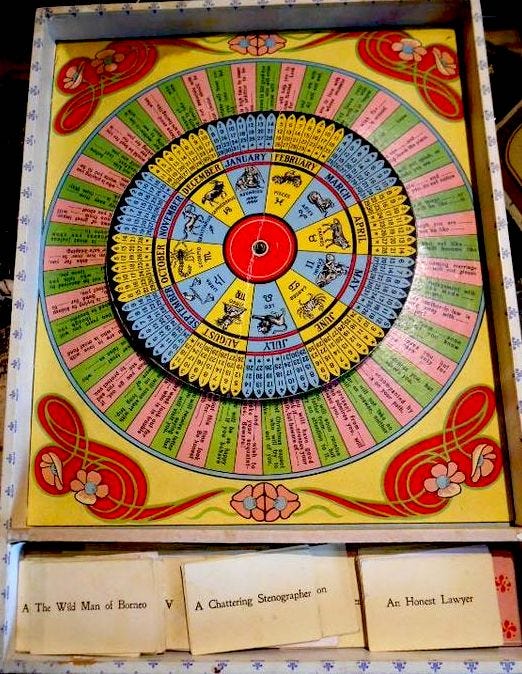
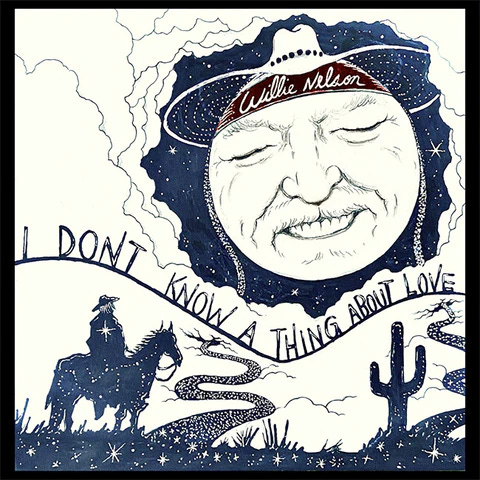
A beautifully put homage to the artistic life from one who embodies it fully. You are truly inspiring, Loene. 💕
It was interesting reading your thoughts on Dylan and reinvention. He has had a number of phases. I didn't enjoy going to one of his shows when he sang all his old standards to a reggae beat. He presented it as a reinvention, but it felt contrived and self indulgent to me. Having said that, I remain a respectful fan.